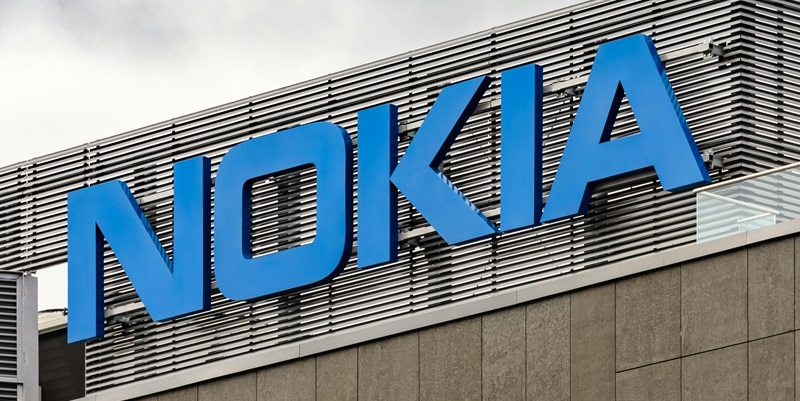Bharti Airtel, India’s largest service provider, has marked a significant milestone in the technological landscape by successfully completing a trial of Nokia’s 5G non-standalone (NSA) cloud radio access network (RAN) solution. This trial comes as a crucial step in Airtel’s broader cloudification strategy designed to augment network scalability, flexibility, and automation. With the rampant pace of technological advancements, this trial underscores Airtel’s commitment to integrating state-of-the-art technologies and delivering unparalleled service quality.
The Core of the Trial: Nokia’s 5G Non-Standalone Cloud RAN
Technological Deployment and Achievements
This pivotal trial leverages Nokia’s AirScale RAN technology, which integrates virtualized distributed units (vDU) and centralized units (vCU) operating on x86 hardware with a container-as-a-service (CaaS) layer. The use of CaaS is particularly noteworthy as it empowers the network with enhanced modularity and resource management capabilities. The key takeaway from this trial is the remarkable throughput of over 1.2Gbps, achieved using the 3.5GHz spectrum for 5G functionality and the 2100MHz spectrum for 4G. Such performance metrics signify a new benchmark for network capabilities, underscoring Airtel’s pursuit of technical excellence.
Nokia’s AirScale technology encapsulates an amalgamation of advanced features geared towards maximizing network performance while ensuring cost efficiency. The deployment of virtualized distributed units along with centralized units on x86 hardware offers the flexibility of running diverse applications seamlessly. This approach harnesses the full potential of cloud infrastructure, paving the way for highly agile and responsive network operations. Essentially, the trial not only proves the technical viability but also heralds the transformative potential of Cloud RAN in modern telecom networks.
Operational Efficiencies and Market Implications
Nokia posits that the integration of Cloud RAN will significantly lower operational expenses for Airtel by optimizing resource allocation and speeding up the monetization of 5G services. The Cloud RAN system supports a hybrid network model through Nokia’s anyRAN approach, effectively combining Cloud RAN and purpose-built RAN functionalities. This dual approach is designed to cater to varied operational needs, ensuring the network remains both versatile and cost-efficient. In the competitive telecom landscape, such technological evolution is indispensable for maintaining leadership and ensuring robust customer satisfaction.
Airtel’s move towards Cloud RAN comes at a time when the telecommunications industry is in the midst of radical transformations. The capability to blend cloud-based and traditional network architectures offers Airtel a unique competitive leverage. Improving resource efficiency and enabling faster 5G service rollout are crucial for reducing overall operational costs. Moreover, by being able to quickly monetize 5G, Airtel can offset the substantial investments required for deploying advanced network infrastructure. This is especially pertinent in the competitive Indian telecom market, where cost-efficiency and scalability are paramount for long-term success.
Strategic Implications and Future Prospects
Bharti Airtel and Competition Landscape
Both Randeep Sekhon, CTO of Bharti Airtel, and Tommi Uitto, president of mobile networks at Nokia, have lauded the success of this trial in their respective press releases. Sekhon emphasized the unwavering efforts to integrate pioneering technologies into Airtel’s network, underscoring the trial as a landmark achievement in service innovation and network enhancement. On the other hand, Uitto highlighted Nokia’s flexible approach to Cloud RAN, supporting adaptable cloud infrastructure and data center hardware choices that are highly customized to meet customer demands.
This trial not only delineates Airtel’s strategic orientation towards technological adeptness but also positions it favorably against competitors such as Reliance Jio. While Jio has adopted a contrasting deployment strategy for 5G, Airtel’s NSA approach—bolstered by Nokia’s cloud capabilities—aims to provide superior scalability and performance. This differentiation can potentially translate into superior user experiences and market share gains. As Indian telcos begin to implement 5G-specific tariffs, companies that manage to deliver robust and efficient services will likely stand out in this rapidly evolving marketplace.
Economic Considerations and Customer Impact
Bharti Airtel, India’s leading telecom provider, has achieved a significant milestone by successfully completing a trial for Nokia’s 5G non-standalone (NSA) cloud radio access network (RAN) solution. This key development forms a vital part of Airtel’s expansive cloudification strategy aimed at enhancing network scalability, flexibility, and automation. This accomplishment showcases Airtel’s dedication to adopting cutting-edge technology to maintain and improve service quality in an era marked by rapid technological advancements. As the demand for faster and more efficient network solutions grows, Airtel’s early adoption and testing of Nokia’s 5G cloud RAN solution position it at the forefront of the next generation of telecommunications solutions. It demonstrates the company’s proactive approach to future-proofing its network infrastructure and ensuring that its customers benefit from the best possible service. By integrating these advanced technologies, Airtel aspires to keep pace with global trends and provide an improved user experience across India.

